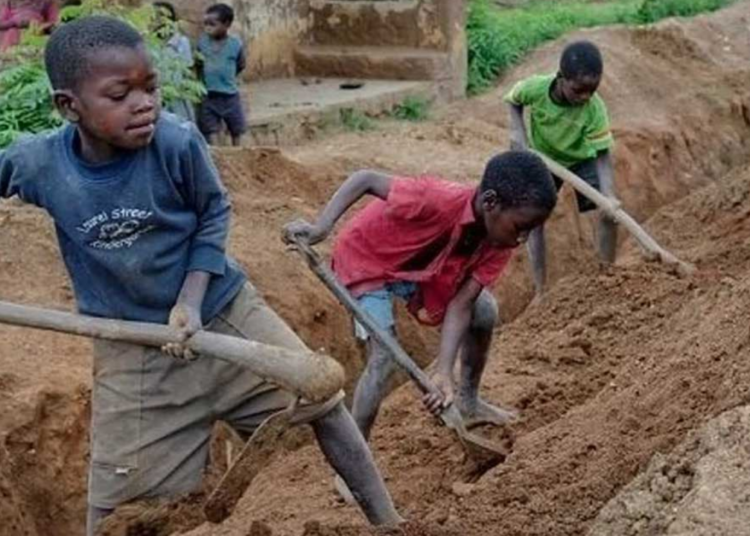Child labour which manifests in several shades has negatively affected the future of thousands of Nigerian children in different parts of the country. Child labour is a serious issue that deprives children of parental love, education, healthcare and safe childhood. Many children across Nigeria are engaged in paid and unpaid forms of work, classified as child labourers, when they are yet too young to work. Others are involved in hazardous activities that may affect their physical, moral, mental and social well-being.
Nigeria is one of the countries that have the highest number of child labourers which is estimated to be about 15 million. Child labour exposes children to financial slavery, stunted growth, inadequate nutrition which could lead to higher rate of diseases. Child labour also results to physical, mental and sexual abuses. Child labourers always lack a normal childhood and the pleasant memories of childhood like love and care from parents. They also lack the ability to have friends of the same age. The most unpleasant part of child labour is that it cuts children off from school and healthcare which are the most fundamental elements needed in the stage of childhood.
Child labour is a vicious practice that should have no space or stand in our society. In nearly every case, child labourers grow up with no love, care or affection from anyone including their parents and other family members. Some of these child labourers are often engaged in hazardous work that could cause injury or moral corruption as they struggle to make a living while neglecting the child’s rights and privileges to have pleasant childhood, quality education and good healthcare.
Child labourers, mostly aged 5-17 years, are also sometimes subjected to sexual violence and harassment as they are raped or sexual abused by adults or peers. Violence of all kind has long time emotional and physical effects on children such as anxiety, depression, low self-esteem, social isolation and poor mental health. When these children become adults, they are likely to suffer from drug and alcohol abuse, risky sexual behaviour and criminal activities.
Some scholars have recommended ways that could help the government in eradicating the act of child labour. The most successful way of protecting children from harmful work is to exclude them from all forms of employment, but some have argued that children should have the right to benefit from work that is appropriate to their age as it can be very vital for self development, high self-esteem, socialisation and household maintenance.
At the national level, government should make efforts to eliminate the worst forms of child labour by finding solutions like formalising the Almajiri system of education to become like other formal schools or western education. Teachers in those schools should also be enlightened by highly informed Muslim ulemas (scholars) on how to handle their pupils.
Similarly, the authorities should ensure that the children are not living under poor conditions in the Almajiri schools. Strong legal framework is also needed to fight child labour just as agencies authorised to fight child labour-related crimes should be strengthened with the collaboration of other law enforcement agencies for more effectively.
More strategies are also needed for intelligence gathering and sharing about the activities of organised criminal groups and individuals exploiting children or maltreating them for further legal actions.
–Garungabbas writes from Mass Communication Dept, ABU Zaria.





